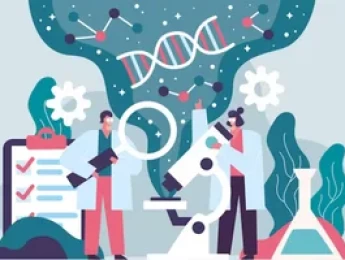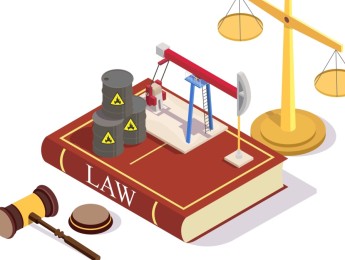Biotechnology has been used for thousands of years to address biological limitations. However, the development of technology was relatively stagnant until recent years where our knowledge of microorganisms, genes and other biological factors has rapidly increased.
When developing an in-depth understanding of biotechnology, it is vital to assess the legal regulations that monitor the lifecycle of biotechnology. These regulations set the standards of safety, ethical use and how biotechnologies should be created. Alongside regulations, individuals can apply for patents to protect their innovation as they establish it in practice. Patents can be used as a method to encourage innovation and gain a positive reputation throughout the desired industry.
Furthermore, it is wise to explore existing biotechnology and how it interacts within its industries. Two major biotechnologies are fermentation and biopharmaceuticals. These have revolutionised their industries, leading to immense success for all involved organisations and individuals.
Upon completion of this course, participants will be able to:
- Understand the importance of biotechnology across various different sectors.
- Describe the fundamental principles of biotechnology.
- Ensure understanding and compliance to all laws, regulations and standards surrounding biotechnology.
- Evaluate emerging technologies and how they will impact different industries.
- Explore the history of biotechnology and how it has developed into what we know today.
- Explain the components that separate biological products from traditional products and processes.
- Comprehend different fermentation technologies and their advantages, disadvantages, and overall purposes.
- Analyse the biopharmaceutical manufacturing process and how this process has revolutionised modern medicine.
This course is designed for anyone within various industries who wishes to develop their knowledge in regard to biotechnology. It would be most beneficial for:
- Research Scientists
- Pharmaceutical Directors
- Agricultural Development Managers
- Biotechnology Engineers
- Biotechnology Facilities Managers
- Compliance Officers
- Biopharmaceutical Engineers
This course uses a variety of adult learning styles to aid full understanding and comprehension. Participants will review case studies of established biotechnologies to highlight the biotechnology development process and how they may establish patents to protect their technology.
They will be provided all the necessary equipment and tools to successfully partake in a variety of learning exercises and methods including presentations, video materials, demonstrations, and group activities. This combination of activities guarantees that the participants will develop full comprehension of the taught content and related practical skills.
Day 5 of each course is reserved for a Q&A session, which may occur off-site. For 10-day courses, this also applies to day 10
Section 1: Introduction to Biotechnology
- Defining what biotechnology is, and defining its purpose and necessity amongst multiple industries.
- Assessing what industries primarily use biotechnology and exploring how this reliance occurred.
- Exploring the different subdisciplines of biotechnology and their categorisation – red, blue, gold, white and more.
- Weighing in on the advantages and disadvantages of biotechnology – are the benefits worth the risks?
- Investigating the history of biotechnology from its discovery to modern research breakthroughs.
Section 2: Laws, Regulations and Standards
- Acknowledging the various laws, regulations and standards that must be adhered to by any organisation or individual that utilises biotechnology.
- Investigating national and international law to understand how they define the standards of biotechnology management and safety.
- Comprehending the potential implications of human rights and how to conduct biotechnological work in an ethical manner.
Section 3: Fermentation Technology
- Understanding how to utilise microorganisms and enzymes to produce a variety of compounds used in different industries.
- The different types of fermentation, and their types of fermenters – solid state fermentation and submerged fermentation.
- Evaluating the application of fermentation technology – production of cells, production of metabolites, modification of compounds and recombinant products.
- Reviewing examples of fermentation technology in practice.
Section 4: Biopharmaceuticals
- Defining what biopharmaceuticals are and how they are used.
- Distinguishing the characteristics of microorganisms commonly used to develop pharmaceuticals and how these directly influence the final products.
- The two classifications of biopharmaceuticals and when to use them – innovator biologics and biosimilars.
- Analysing the purity, impurity and contaminants of specimens and samples.
- Using cell therapy, antibody therapy, gene therapy and recombinant protein therapy to address major health problems in society.
Section 5: Acquiring Patents
- Describing what a patent is and why patentability is crucial within biotechnology.
- Exploring what biotechnologies can be patented and the criteria to achieve this.
- Utilising patentability to protect innovative biotechnology.
- How to maximise protection potential for an invention throughout the development lifetime.
- The examination process of acquiring patents and enforcing them.
Upon successful completion of this training course, delegates will be awarded a Holistique Training Certificate of Completion. For those who attend and complete the online training course, a Holistique Training e-Certificate will be provided.
Holistique Training Certificates are accredited by the British Assessment Council (BAC) and The CPD Certification Service (CPD), and are certified under ISO 9001, ISO 21001, and ISO 29993 standards.
CPD credits for this course are granted by our Certificates and will be reflected on the Holistique Training Certificate of Completion. In accordance with the standards of The CPD Certification Service, one CPD credit is awarded per hour of course attendance. A maximum of 50 CPD credits can be claimed for any single course we currently offer.
- Course Code IND05-113
- Course Format Classroom, Online,
- Duration 5 days











